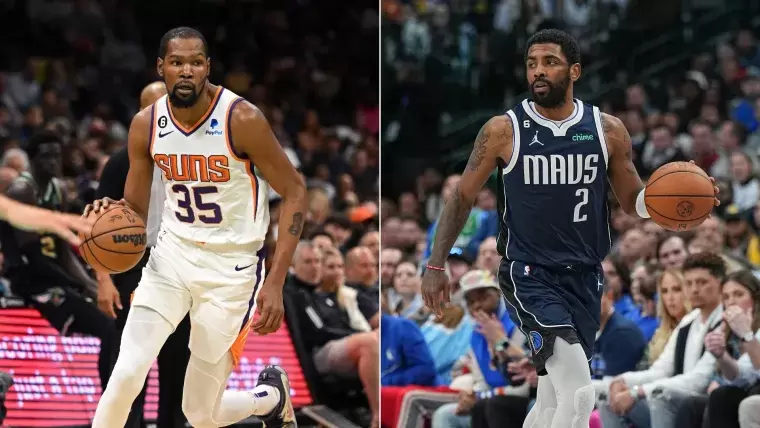|
It's no secret that today's NBA players have a lot of power to determine their future compared to other athletes. Teams are always willing to satisfy the needs of their superstars because they're investing so much in them. This ultimately puts the player in a position where he wields a lot of power to influence his team's decision making. However, that power is sometimes used to request a trade if he's dissatisfied for some reason.
This year, as Kyrie Irving and Kevin Durant had their trade requests granted as the Brooklyn Nets shipped them off to the Mavericks and Suns, ending the championship dreams Brooklyn once had when they signed the two stars. While all players deserve the freedom to seek a new destination, one must wonder when should a player be entitled to want out. It's very common for high-profile players to voice frustration with their teams whether it's the departure of an important player, displeasure with the coach, or concern about their team's direction. Granted, it does brings another layer of entertainment to a league filled with storylines each week. Durant himself stated, "It just brings more attention to the league, and really what makes you money is when you get more attention. So, I think it’s great for the league, to be honest." But is it really great for the league when a superstar takes advantage of the power his team gives him? There are plenty of scenarios where a player wants to be traded even though he might have been the problem. The NBA is a league where teams need stars to perform at a high level, and if they fall short because of their best player's personal shortcomings, that's not on the other players or the coach. Irving is a perfect example, as his personal beliefs and actions held the Nets back from reaching their potential. While he felt like the Nets hadn't respected him, it was Irving who did them a disservice - making more headlines for his controversial opinions rather than winning. So that goes back to the original question: when is it reasonable for a player to seek a new destination? The answer is that a player must consistently star for their team, embrace every challenge thrown at them, and hold themselves accountable before expressing his desire to be traded. If it's the team that fails them every season, then they have every right to seek greener pastures. Even after wanting out, they still must conduct themselves professionally. Anthony Davis and Carmelo Anthony are two players who fit this category. Anthony proved to be the superstar the New York Knicks were hoping for as he consistently performed at a high level for six seasons. But with poor executive decisions, the Knicks began to waste Anthony's all-star years. While he didn't ask to be traded, everyone knew he wanted a fresh start. Even under a regime that was intent on criticizing Anthony, he continued to compete each game. Today, the majority of the Knicks fans appreciate him for embracing one of the most demanding markets in sports. Davis quickly blossomed into the player the New Orleans Pelicans hoped he'd be when they drafted him with the first pick in 2012. However, they only managed to make the playoffs twice, and in the midst of another losing season Davis expressed his desire to be traded. Despite backlash from fans and being forced to play restricted minutes, Davis still performed at an exceptional level before getting shipped to the Lakers in the offseason. At the end of the day, players will always have their opinions regardless of whether they're justified or selfish. They know the power their teams are granting them and some will use it for themselves while others don't find it that important. Then again, anytime a star player gets traded, there's always the chance for bitter feelings between all parties involved. But if a he gets traded after years of embracing the responsibility of a star, he'll be remembered for all the right reasons. Comments are closed.
|
Date Published
July 2024
Categories |

 RSS Feed
RSS Feed